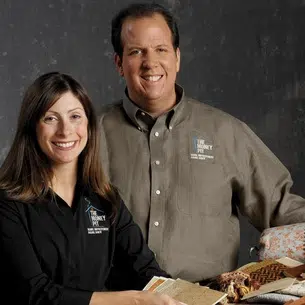By Suzanne Smalley
(Reuters) – The White House and European Commission will announce on Friday an agreement to speed up and enhance the use of artificial intelligence to improve agriculture, healthcare, emergency response, climate forecasting and the electric grid.
A senior U.S. administration official, discussing the initiative shortly before the official announcement, called it the first sweeping AI agreement between the United States and Europe. Previously, agreements on the issue had been limited to specific areas such as enhancing privacy, the official said.
AI modeling, which refers to machine-learning algorithms that use data to make logical decisions, could be used to improve the speed and efficiency of government operations and services.
“The magic here is in building joint models [while] leaving data where it is,” the senior administration official said. “The U.S. data stays in the U.S. and European data stays there, but we can build a model that talks to the European and the U.S. data because the more data and the more diverse data, the better the model.”
The initiative will give governments greater access to more detailed and data-rich AI models, leading to more efficient emergency responses and electric grid management, and other benefits, the administration official said.
Pointing to the electric grid, the official said the U.S. collects data on how electricity is being used, where it is generated, and how to balance the grid’s load so that weather changes do not knock it offline.
Many European countries have similar data points they gather relating to their own grids, the official said. Under the new partnership all of that data would be harnessed into a common AI model that would produce better results for emergency managers, grid operators and others relying on AI to improve systems.
The partnership is currently between just the White House and the European Commission, the executive arm of the 27-member European Union. The senior administration official said other countries will be invited to join in the coming months.
(Reporting by Suzanne Smalley; Editing by Peter Graff)







